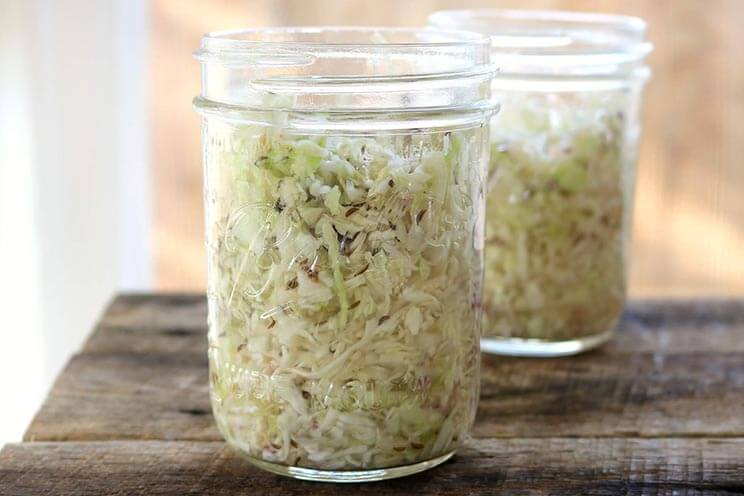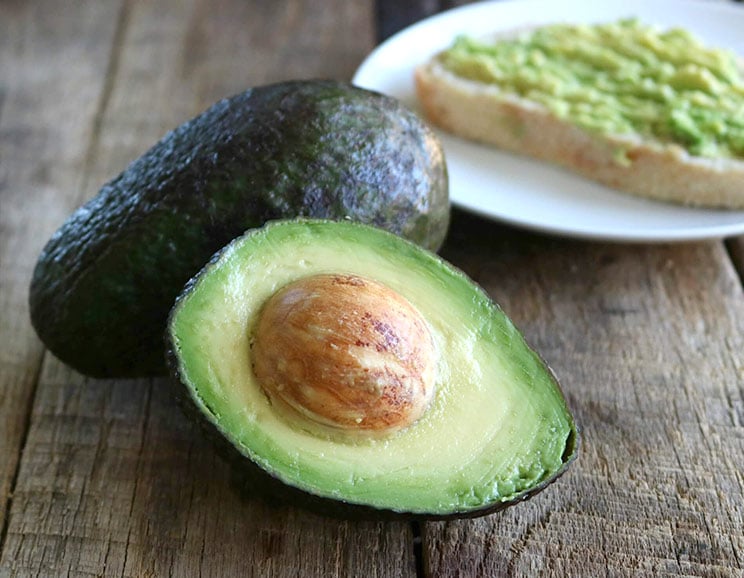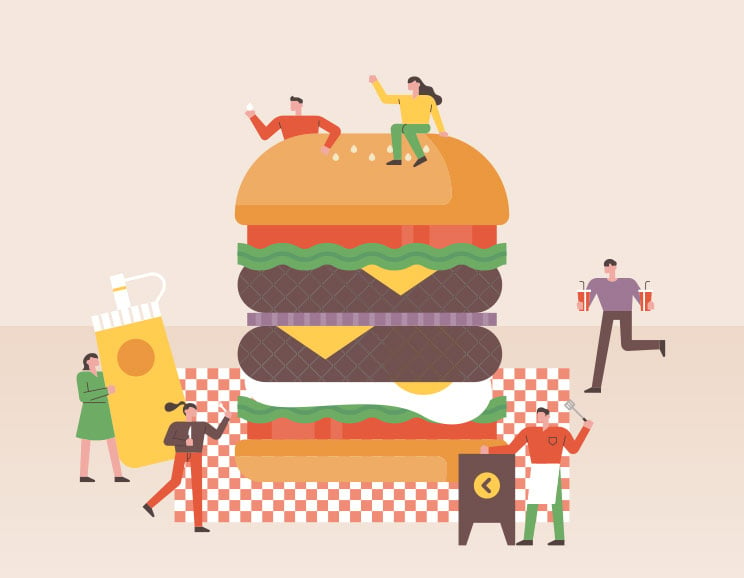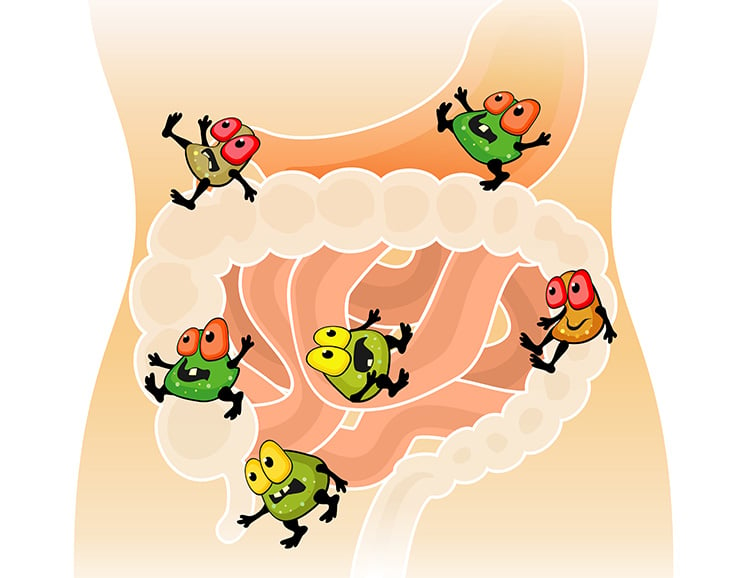Over the past few years we’ve discovered just how important having good gut bacteria is to overall health.
Considering that our guts are home to diverse communities of over 30 trillion of these microbes, it makes sense that they play key roles in digestion, inflammation, immune response, weight, and even the development of colon cancer. (1, 2)
But a question has remained: How far does their influence over our health reach? As it turns out, pretty far. Research is now showing that our gut microbes can affect our circadian rhythms, which can alter our behavior, mood, energy levels, and gastrointestinal health.
Do you struggle with bloating, gas, constipation, or other digestive issues? We’ve created a FREE guide to healing your gut naturally.
Click here to get your FREE copy of our Digestion Guide!
What is the Circadian Rhythm?
The term circadian rhythm refers to what is essentially our “body clock.” This internal clock, which is present in almost all living organisms, is responsible for regulating sleep and wake cycles, hunger and satiety, hormone balance, and behavior. It is driven by a master clock located in our brains called the suprachiasmatic nucleus (SCN), which is connected to other “peripheral” clocks located in different organs like the liver, as well as the gut. (3)
This master clock runs on a 24-hour schedule by receiving cues from our environment, such as light, darkness and food. When things are running smoothly and our circadian rhythm isn’t disturbed by artificial night lights or a bad diet, our bodies naturally feel well-rested and happy. When our circadian rhythms are disrupted, however, our health can go south quickly.
What Does the Gut Have To Do With Sleep?

Researchers have discovered that our gut bacteria actually have their own circadian rhythm, and that these have a major influence over ours.
In essence, these microbiota influence our bodies by moving around our intestines every 24 hours, coming into contact with different intestinal cells that regulate genes and biochemical processes, such as fatty acid production. (4) The bacteria touching these cells cause them to send signals to our master and peripheral clocks, which then have an effect on our health and behavior.
When our gut microbes are disrupted, it throws a wrench in our circadian rhythm, while disruptions in our circadian rhythm also disturb our gut microbes. It is essentially a continuous feedback loop between us, our environment, and our microbes.
This is also one explanation for why we see links between gut disorders such as irritable bowel syndrome (IBS) and night shift workers, who are constantly disrupting their gut microbes and, consequently, their circadian rhythms. (5)
How Food and Light Exposure Affect Your Gut Clock
Light exposure has a huge effect on circadian rhythm. After all, the reason you feel sleepy when it gets dark outside is directly due to your circadian rhythm regulating your melatonin levels. This interaction with light is so powerful that studies have shown just shining a small amount of light on the back of a person’s knee is enough to affect their body clock. (6)
However, research is now showing that another factor may be just as important as light in regulating circadian rhythm, and it’s diet. Of course, we also know that our diet and gut bacteria are closely tied. [tweet_quote]High-fat, high-carb processed food diets severely disrupt the circadian rhythm of gut bacteria.[/tweet_quote]
For instance, research shows that high-fat, high-carb processed food diets severely disrupt the circadian rhythm of gut bacteria. In one study researching mice, this disruption caused their metabolisms to fall apart, leading to high cholesterol and obesity. (7) On the other hand, diets low in inflammatory fats and processed carbs, and high in Omega-3 fatty acids and antioxidants help bring circadian rhythms into balance. (8)
What Happens When Your Circadian Rhythm is Disrupted?
Since our gut bacteria and circadian rhythm are so intertwined, it’s easy to see how unhappy gut bacteria could keep us up at night – or worse.
Some of the other scary side effects of a disrupted circadian rhythm due to a bad diet, or disturbed sleep, include: (9)
- Increased risk of developing or aggravating gastrointestinal diseases such as irritable bowel syndrome (IBS), gastroesophageal reflux disease (GERD) or peptic ulcer disease.
- Accelerated aging.
- Tumor growth and formation in the liver and gastrointestinal tract.
- Obesity.
As you have probably noticed, most of these side effects are related to the health of your intestines and bacteria. Even your liver is affected by your gut bacteria, since the rhythms of cells in the liver are influenced by circadian rhythms. (10) These effects truly remind us of the fact that the body is a holistic system.
How to Keep Your Gut Happy and Sleep Better

According to research, it really does seem that happy gut bacteria equals a happier you. Or, at least, one that sleeps better and has more energy during the day.
Knowing this, it makes sense to nourish these bacteria as best as you can throughout the day. Below are some tips to help you get your gut bugs and circadian rhythm back on track:
- Add in more fermented foods to your diet like sauerkraut, kombucha, coconut water kefir, non-dairy yogurts, and kimchi.
- Invest in a probiotic supplement.
- Feed your good gut bacteria with prebiotic foods like Jerusalem artichokes, cooked and cooled sweet potatoes, green bananas and plantains.
- Consume raw honey to help get rid of bad bacteria. (11)
- Switch to natural shampoos, soaps, and household cleaners, as chemicals can affect your gut microbes. (12)
Some other ways to avoid disrupting your gut bugs and circadian rhythm are to avoid lights from electronics after sunset or an hour before bed, and to try to get on a wake/sleep schedule with the sunrise. Of course this isn’t possible for everyone, but even going to bed and getting up at the same time throughout the week will help your body adapt to a schedule.
Also, try and eat at the same time every day and avoid snacking too late at night or eating at erratic times. This will help your gut bacteria get on a regular feeding schedule.
Sticking with these tips will help you build healthy gut flora that also helps you sleep better and wake up refreshed.

(Read This Next: How to Lose Weight by Balancing Your Gut)



 8 Butter Substitute Ideas to Cook, Bake and Fry Anything
8 Butter Substitute Ideas to Cook, Bake and Fry Anything









Show Comments